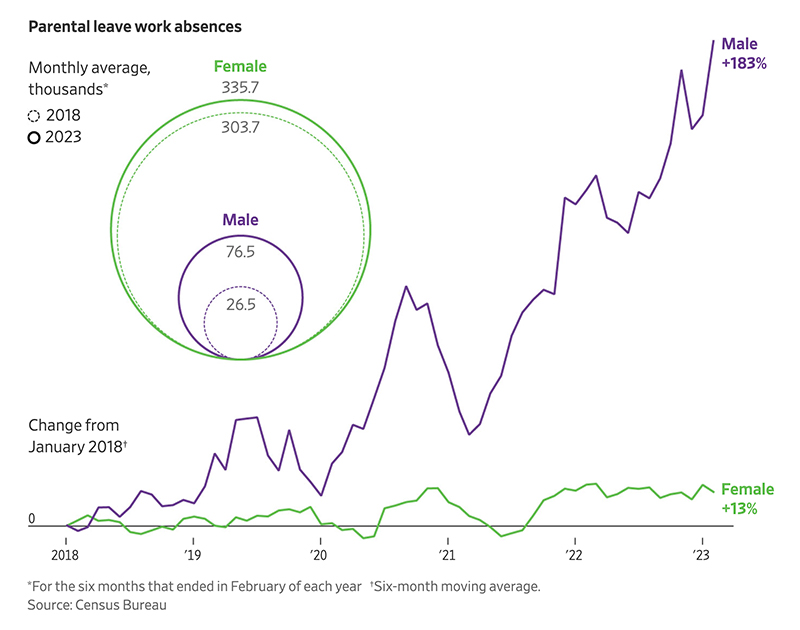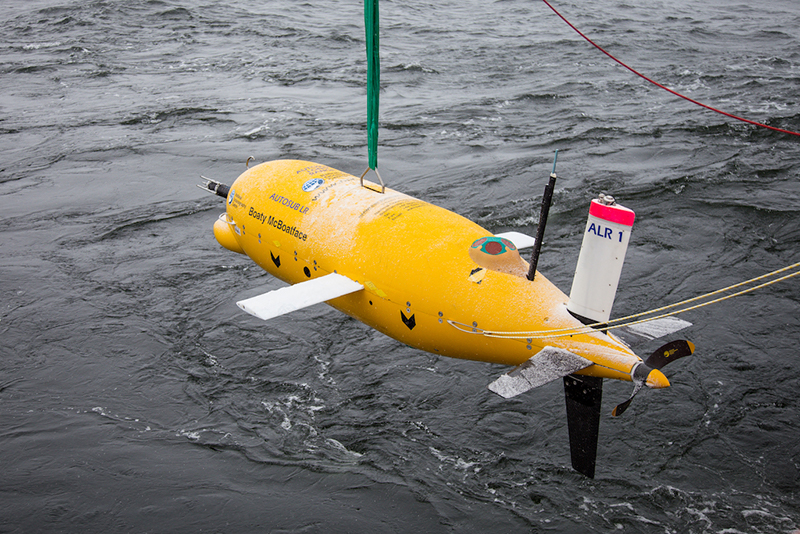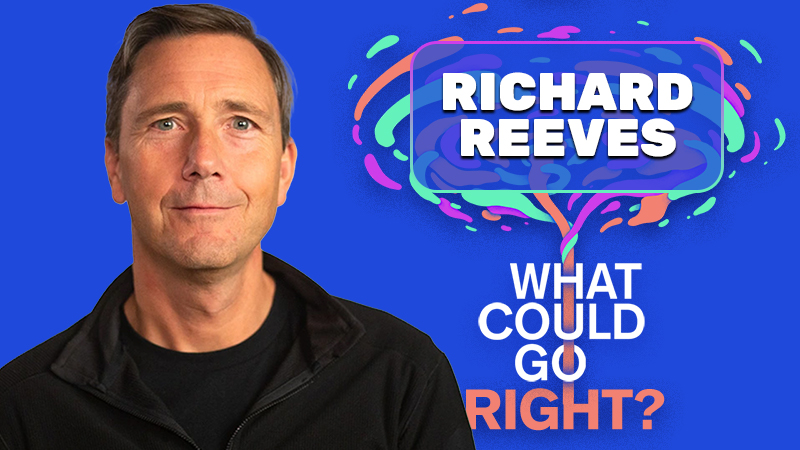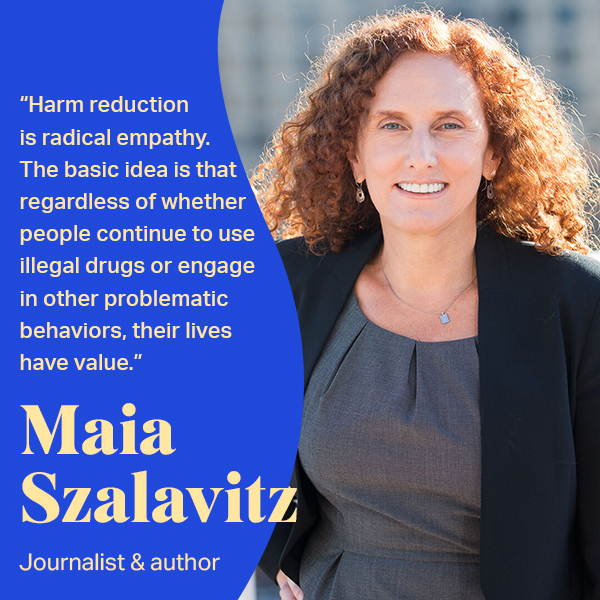Volcanoes are erupting in The Philippines, but on-fire Australia received some welcome rain. The Iran war cries have been called off and The Donald’s military powers are about to be hamstrung by the Senate. Meanwhile, his impeachment trial is starting, and we’re all on Twitter for a front-row seat.
What Could Go Right? The gender gap switch
As economic roles are reshuffled, what is needed for a gender-equal society?
This is our weekly newsletter, What Could Go Right? Sign up here to receive it in your inbox every Thursday at 6am ET. You can read past issues here.
Do gender gaps now favor women and girls?
Women and girls are kicking butt and taking names. Men and boys, not so much. Depending on which political milieu you’re in, those statements either resonate or ring a very discordant note. Much of ordinary men’s struggles, scholar Richard Reeves writes in Of Boys and Men: Why the Modern Male Is Struggling, Why It Matters, and What to Do About It, is hidden by an upper crust of Fortune 500 companies and government halls, where men still dominate. But peek underneath the top layer of society, and there is a gender shift occurring.
“A sharp way to put this in data terms,” Reeves tells us in our latest What Could Go Right? podcast episode, “is that there is a bigger gender gap in United States higher education today than there was when Title IX was passed to promote women and girls 50 years ago. But it’s the other way around.” Women now earn more than half of bachelor’s degrees, master’s degrees, and PhDs. Seventy percent of high school valedictorians are girls, and girls are also more likely to graduate high school at all.
As for the labor market, the situation for working class and minority men is rough. (Although Black men in particular have most recently made major employment strides.) One in three men with only a high school education—about five million of them—are out of the labor force, writes Reeves in Of Boys and Men. Working class men are also more likely to be in jobs threatened by automation, long-run trends away from physical strength and toward “soft skills,” and cheaper foreign labor.
The issue is cultural and psychological, too. Any straight, single woman dating in the last decade knows that men, by and large, seem adrift in a way that is tough to explain. My own pet theory about it has been that men have not yet found a way to positively adjust to women’s economic gains and all the attendant social changes those have brought with them. Whereas women have been steadily expanding beyond the traditional female identity of caretaker for the last 50-plus years, the equivalent push for men has been anemic. We’ve got “boss bitches” and “supermoms.” We’ve got “boss bitches” and “supermoms.” Some cultural heft for outstanding dads and housework-game husbands would be helpful. But missing, too, is what Substacker Andrew Sullivan has called a direction toward noble masculinity.
Why am I covering all this in a newsletter devoted to progress? First, because it’s impossible not to understand one half of this story as a triumph. We most often hear about the difficulties women face, and many still remain. But the strides that women have made over the years should also be acknowledged, and celebrated.
Second, because I find it necessary, in the face of the Andrew Tates of the world, to offer constructive ways for men to flourish that neither frames the discussion as an us vs. them forever fight nor pretends that returning society to the 1950s is a legitimate solution. To his credit, Reeves avoids both. Instead, he offers both policy-based and social solutions, including technical schools, encouraging more involved fathers, and directing men to enter women-dominated HEAL (health, education, administration, and literacy) occupations.
On the fatherhood front, there seems to be movement already. There has been an explosion in the number of American dads taking parental leave, a shift The Wall Street Journal puts down mainly to new government and employer policies. (The work-life balance reevaluation that occurred during the pandemic was a factor, too.) By 2026, 11 states and the District of Columbia will require employers to provide paid leave, up from just four in 2018. Both mothers and fathers are also taking longer leaves. This hits two birds with one stone: as men find value in becoming more involved fathers, a combination of male-led childcare and mandatory paid parental leave could help close the gender pay gap.

There is a certain kind of reaction I have heard to Reeves’ arguments that boil down to, “Women have been on the bottom for so long. Now they’re coming to the top? If that’s even true, why should we care? Let the good times roll.” Reeves likens such reactions to the parents of a boy and a girl being forced to choose between their successes.
We have done well to remake society to be more supportive of women. Now men need a little support as well. If this can be done without falling prey to the culture wars, meaning in a way that keeps women’s wins intact and provides men with a more expansive, positive view of themselves and their masculinity, we will be on track for a bright future.
Before we go
🇬🇧 Do any other Internet creatures out there remember when the United Kingdom’s environmental research agency, in 2016, tried to crowdsource the name for their next “royal research ship” (RRS), and the winner was . . . Boaty McBoatface? The results were ignored, and the agency ended up naming the ship the RRS David Attenborough.
The UK’s National Oceanography Centre, however, which apparently has a much better sense of humor, dubbed three of their autonomous water vehicles Boaty McBoatface in 2017. For the past five years these vehicles have been zipping around gathering climate research in remote areas where human pilots can’t go, like miles under Antarctic ice shelves.

You’re doing good work out there, Boaty McBoatface. | Photo credit: National Oceanography Centre
👏 Last but not least, congratulations to Azerbaijan and Tajikistan, which the World Health Organization just declared malaria-free. Forty-one countries and one territory have now reached malaria-free status. Previous to Azerbaijan and Tajikistan, China was the latest country to do so in 2021.
Below in the links section, pollution-tracking satellites, earthquake-detecting phones, mRNA-based peanut allergy medicine, and more.

How would you like to send your kids to a school with giant googly eyes on its walls? Designed in part by students, the Reggio school in Madrid‘s “radical construction not only brings nature indoors, but also encourages plant and animal life to colonise its ‘living’ exterior walls,” Positive News reports.
The Boys Are Not All Right | S4 E9

Is the struggle of boys and men a partisan issue? And how have recent economic and social changes influenced the classroom, the workplace, and the family? Brookings Institution scholar Richard V. Reeves joins us to tackle the complex crisis of boyhood and manhood. Plus, we look at the US’s renewable power industry and discuss Malaysia’s death penalty change. | Listen to the episode
Progress, Please
(Found good news? Tweet at us @progressntwrk or email.)
Other good stuff in the news 🚴
Energy & Environment:
- Fossil fuel emissions from electricity set to fall | BBC
- Global heat pump sales continue double-digit growth | IEA
- Cyclists now outnumber motorists in City of London | Forbes
- UK new car sales jump 18% in March; best month ever for EVs | Reuters
- America’s Paris Agreement goals are actually within reach | Heatmap
- The number of operating and planned coal plants fell in 2022 | Global Energy Monitor
- NASA is getting really serious about tracking air pollution | Wired
- German meat consumption in 2022 was lowest on record | Agriland
Public Health:
- Victory over big pharma opens door to cheaper tuberculosis drugs | The Guardian
- Law schools try texting to monitor students’ mental health | Reuters
- Late-stage RSV vaccine trials show ‘exciting promise’ | CNN
- Peanut allergies may be treatable with mRNA-based medicine | Interesting Engineering
- Teenage pregnancy in Philippines declines in past five years | The Star
- There’s been substantial progress against child mortality over the years | Our World in Data
- Cancer and heart disease vaccines ‘ready by end of the decade’ | The Guardian
- Scotland’s minimum pricing linked to 13% drop in alcohol-related deaths | The Guardian
- New tuberculosis breakthroughs may help humanity fight back against the disease | Freethink
Science & Tech:
- Are we near the end of animal testing? | Inverse
- First CRISPR therapy seeks landmark approval | Nature
- The phones that detect earthquakes | BBC
- Technologies that will change your health: Devices to help you sleep, robotic boots, and more | The Wall Street Journal
- London City airport ends 100ml liquid rule | The Guardian
- Instant videos could represent the next leap in AI technology | The New York Times
Politics & Policy:
- EPA tightens mercury emissions limits at coal power plants | AP
- IRS unveils $80 billion plan to overhaul tax collection | The New York Times
- How parking lots across the US are being turned into housing | Fast Company
- Ecuador court upholds ‘rights of nature’ and blocks Intag Valley copper mine | Mongabay
- EPA proposes new chemical plant regulations aimed at cutting exposure to toxic substances | The Hill
- Missouri is making period products free in schools so students don’t have to miss class | NPR
- Washington state Senate passes assault-style weapons ban | The Hill
Society & Culture:
- Why is Gen Z drinking less? | The Hill
- Syrian refugee elected mayor of German village | Reuters
- Recovery high schools help kids heal from an addiction and build a future | NPR
- Japan court ruling granting refugee status to Ugandan lesbian finalized | The Mainichi
Economy:
- Labor market sees shrinking employment gap for Black workers | Axios
- America is back in the factory business | The Wall Street Journal
- Americans are working fewer hours than before the pandemic | Axios
TPN Member originals 🧠
(Who are our Members? Get to know them.)
- The dollar is dead, long live the dollar | Ian Bremmer
- Ruth Wilson Gilmore: “Where life is precious, life is precious.” | Krista Tippett
- What I learnt from three banking crises | Gillian Tett
- Murtaza Hussain on how immigrant and minority voters are misunderstood | Yascha Mounk
- Jess Wade on chiral materials, open knowledge, and representation in STEM | Tyler Cowen
- Busting myths about deglobalization and what it means for travel | Parag Khanna
- Parasocial relationships are just imaginary friends for adults | Arthur C. Brooks
- Creating diverse and inclusive pathways to space | Ché Bolden
- Do we get better or worse at adapting to change? | Jason Crawford
- AI is here. But AGI is not. And that’s OK (for now) | James Pethokoukis
- Why banning TikTok won’t do any good | Fareed Zakaria
- Let’s return to the office to cultivate the leadership we need | Penny Abeywardena
- The age of energy insecurity | Jason Bordoff
- The promise and peril of generative AI | Diane Coyle
- Ask me anything. | Zachary Karabell
- The abortion pill ruling | Isaac Saul
Department of Ideas 💡
(A staff recommendation guaranteed to give your brain some food for thought.)
A Handbook for Public Life | The Liberal Patriot
What the ancient Roman philosopher Epictetus can teach us about politics and public life today
Why we picked it: Here’s the tl;dr version: 1) Keep calm and in control of yourself. 2) Elections aren’t the only things you can lose. 3) Remember the nature and purpose of public life. Now do yourself a favor and read the whole thing. —Brian Leli
New Member Alert

Maia Szalavitz is the author, most recently, of Undoing Drugs: The Untold Story of Harm Reduction and the Future of Addiction, which is the first history of the movement aimed at focusing drug policy on minimizing harms, not highs. She is a contributing opinion writer for The New York Times and has written for numerous other publications including TIME, Wired, Elle, The Nation and Scientific American.
Until Next Time
Previous experience: schoolteacher. Currently: rat czar. 🐀


